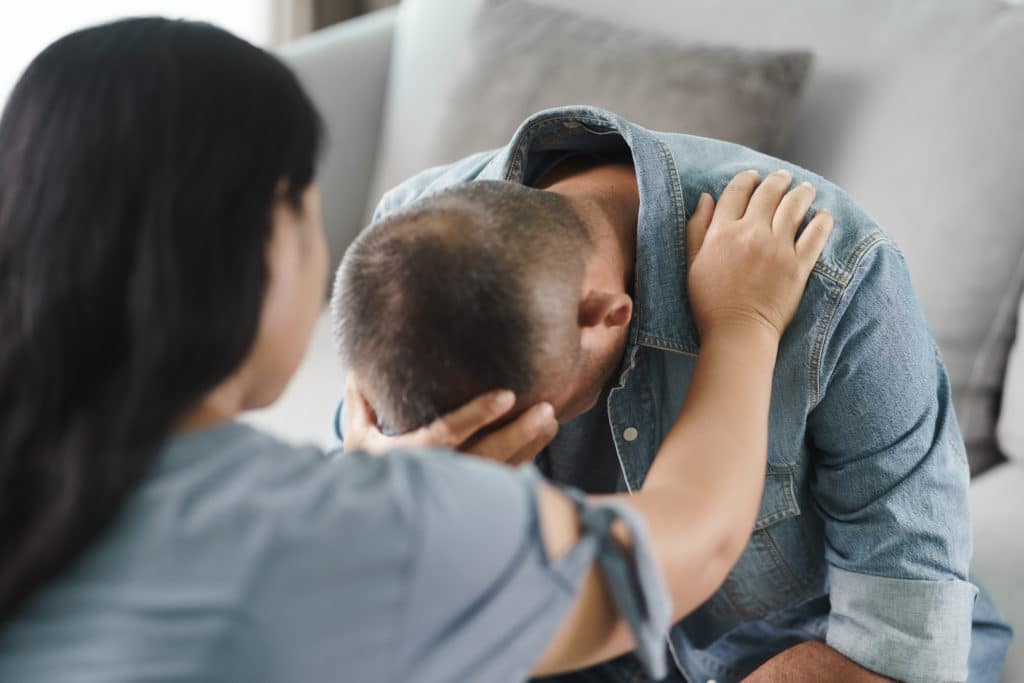People who have experienced trauma, or know someone close to them who has, often wonder do I have PTSD or how do I know if I have PTSD? So, do you have PTSD? You might be surprised to learn that you don’t need to have experienced trauma directly to have developed PTSD.
What is PTSD?
PTSD stands for post-traumatic stress disorder. It is a mental health condition that can develop roughly six months after experiencing trauma.
Let’s take a quick step back:
Firstly, everyone experiences feelings of sadness after the unexpected loss of a loved one or fear after a break-in or natural disaster. Someone who was trapped in a terrible fire might find the sight of fire or smell of smoke a terrifying trigger immediately after the event.
These are all normal feelings.
But do you have PTSD because you have these feelings? Not necessarily.
PTSD develops when these normal feelings should have gone away, but they didn’t. PTSD develops when the feelings you continue to experience months or years after the traumatic experience interferes with your daily tasks.
For example: If that same person who was trapped in a terrible fire has insomnia two years later because they experience severe flashbacks and nightmares, and they also run away and experience panic attacks at the smell of smoke, they may begin to wonder do I have PSTD?
What Causes PTSD?
Interestingly, PTSD can be caused by a wide range of experiences, and they don’t all have to be yours. If someone close to you, like a child, parent, sibling, or spouse, experiences a traumatic event, you, too, can develop PTSD. Some causes include:
- Losing a baby or having traumatic childbirth experiences
- Car or work accidents
- Major injuries or surgeries
- Natural disasters
- The death of someone you love
- Witnessing acts of extreme violence
- Childhood or domestic abuse
- Physical, emotional, or sexual assault
- War
Out of everyone who experiences a traumatic event, one in three will develop PTSD.
People who have experienced depression or anxiety are more likely to develop PTSD. Individuals who don’t have a lot of support from friends and family, especially after a traumatic event, are also at a higher risk of developing PTSD.
How To Know Do I Have PTSD
If you have experienced a traumatic event or someone near you has experienced a traumatic event, you don’t necessarily have to worry about PTSD if it was recent. Feelings of anxiety, hyperarousal, flashbacks, and insomnia are perfectly normal after a traumatic event. But suppose it has been six months or longer, and you still experience the symptoms, which impede your ability to function normally. In that case, you might consider talking to a mental health professional at a mental health retreat near New Jersey.
Hyperarousal
People who have PTSD often experience what is called hyperarousal. This means your resting adrenaline rates are significantly higher than they should be; they rest at the same level as they would in an emergency or traumatic event. This causes a myriad of other physical and mental health problems because your body is not meant to have such a high resting adrenaline level. It also prevents you from being able to process your trauma and move on.
Flashbacks
If you are asking, do I have PTSD, consider whether you also experience flashbacks regularly. A lot of people with PTSD have trouble concentrating, anxiety, or feel on edge all the time.
When you experience flashbacks, you are more likely to think about your traumatic event and then try to mentally prepare for what you would do if it happened again. That feeling is founded in your natural survival mechanisms, making it difficult to process what you experienced and move on.
Finding Tri-State PTSD Treatment
If you are ready to get help, let Water Gap Wellness Center lend a hand. We run a premiere PTSD treatment center. Our staff comprises compassionate, qualified individuals who utilize things like trauma-informed therapy to help you address triggers and identify how you can move on from things like flashbacks and hyperarousal.
At our mental health treatment center near New Jersey, you can detach from the stress of your daily life, and disappear into a supportive natural environment tucked away amidst hills and forests. Our mental health treatment center specializes in therapies like acceptance therapy and cognitive behavioral therapy.
Let Water Gap Wellness Center help you get the right PTSD treatment today.




